Complete Solutions to Biomolecules of chapter BIOMOLECULES of Class 12 book with complete answers and questions
| Class 12 | CHEMISTRY |
| Chapter | BIOMOLECULES |
| NCERT EXEMPLAR | Biomolecules |
| Number Of Questions | 71 |
| Academic Year | 2023-24 |
Glycogen is a branched chain polymer of `alpha-D` glucose units in which chain is formed by `Cl-C4` glycosidic linkage where as branching occurs by the formation of `C1-C6` glycosidic linkage. Structure of glycogen is similar to .... .
View SolutionWhich of the following polymers of glucose is stored by animals?
View SolutionSucrose (cane sugar) is a disaccharide. One molecule of sucrose on hydrolysis gives........ .
View SolutionWhich of the following pairs represents anomers?
View SolutionProteins are found to have two different types of secondary structures viz `alpha`-helix and `beta`-pleated sheet structure. `alpha`-helix structure of protein is stabilised by
View SolutionIn disaccharides, if the reducing groups of monosaccharides, i.e., aldehydic or ketonic groups are bonded, these are non-reducing sugars. Which of the following disaccharide is a non-reducing sugar?
View SolutionWhich of the following acids is a vitamin?
View SolutionDinucleotide is obtained by joining two nucleotides together by phosphodiester linkage. Between which carbon atoms of pentose sugars of nucleotides are these linkages present ?
View SolutionNucleic acids are the polymers of
View SolutionWhich of the following statements is not true about glucose?
View SolutionEach polypeptide in a protein has amino acids linked with each other in a specific sequence. This sequence of amino acids is said to be... .
View SolutionDNA and RNA contain four bases each. Which of the following bases in not present in RNA?
View SolutionWhich of the following B group vitamins can be stored in our body?
View SolutionWhich of the following bases is not present in DNA?
View SolutionThese cyclic structures of monosaccharides are given below which of these are anomers.
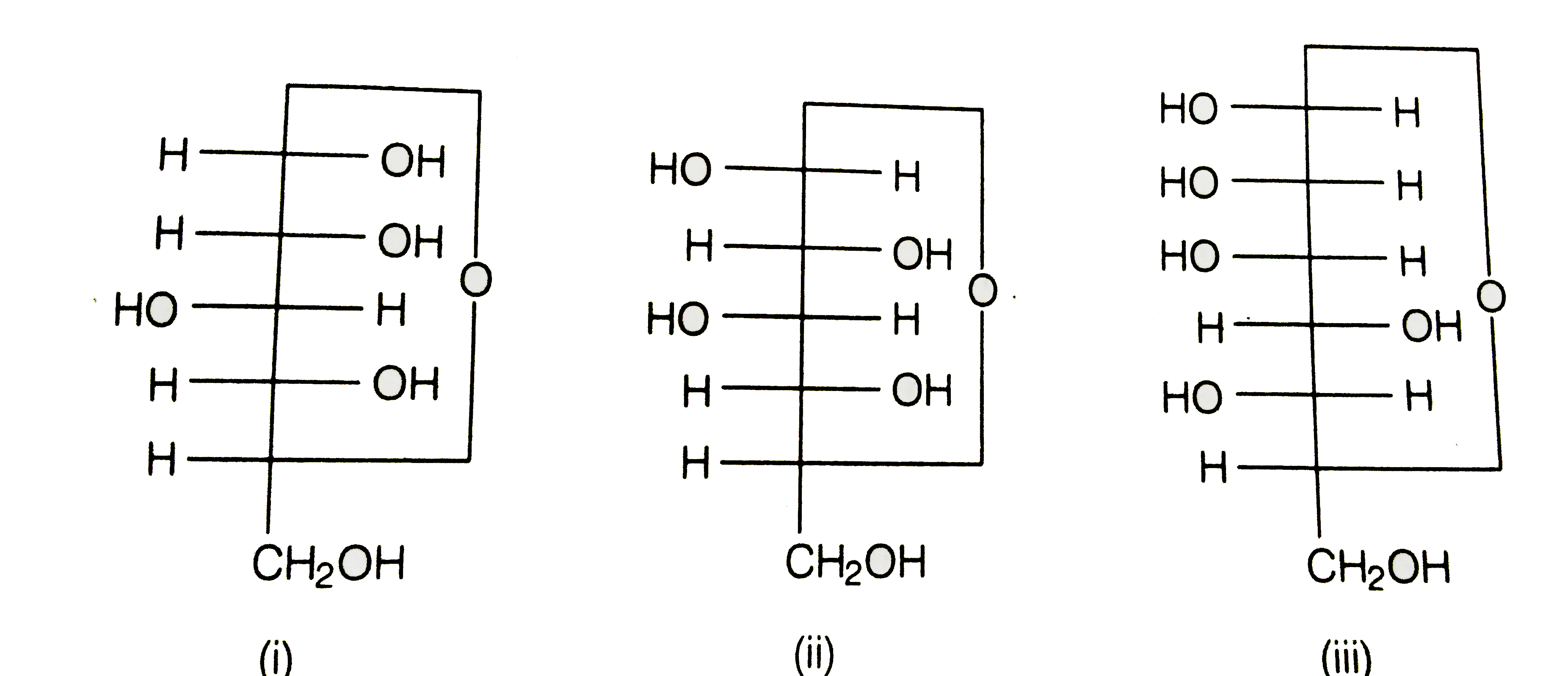
View SolutionWhich of the following reactions of glucose can be explained only by its cyclic structure?
View SolutionOptical rotations of some compounds alongwith their structures are given below which of them have D configuration.
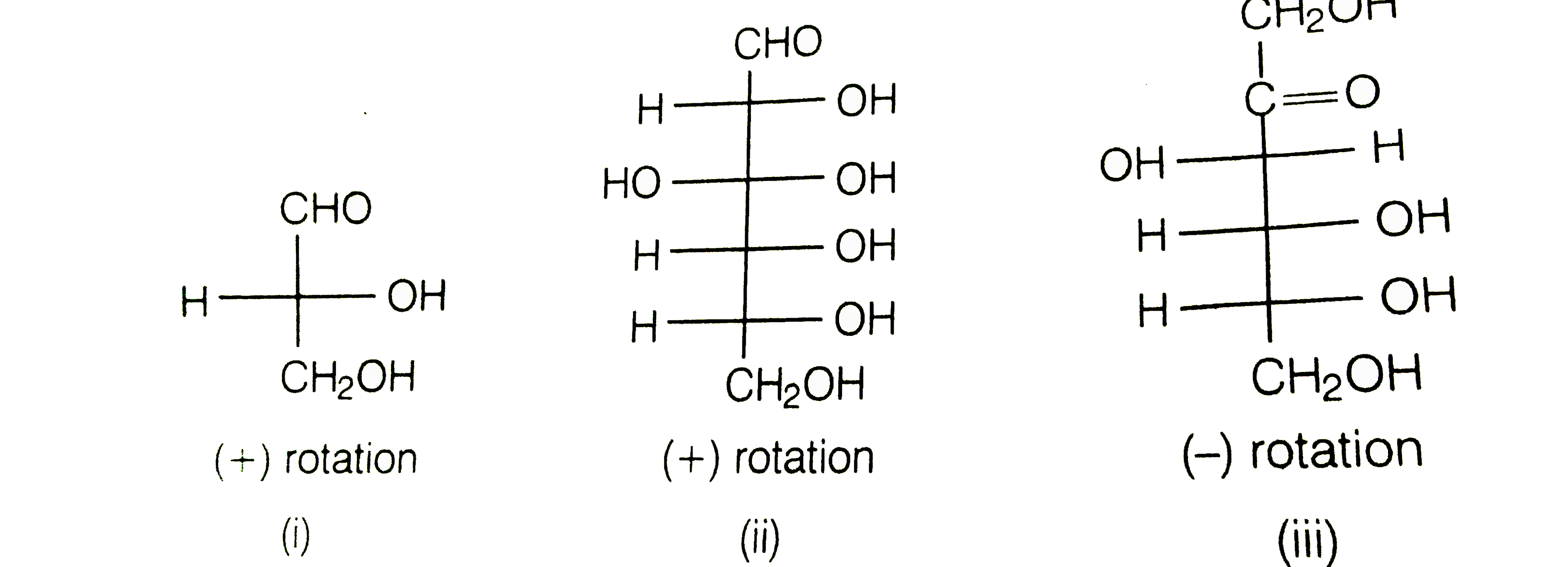
View SolutionStructure of disaccharide formed by glucose and fructose is given below. Identify anomeric carbon atoms in monosaccharide units.
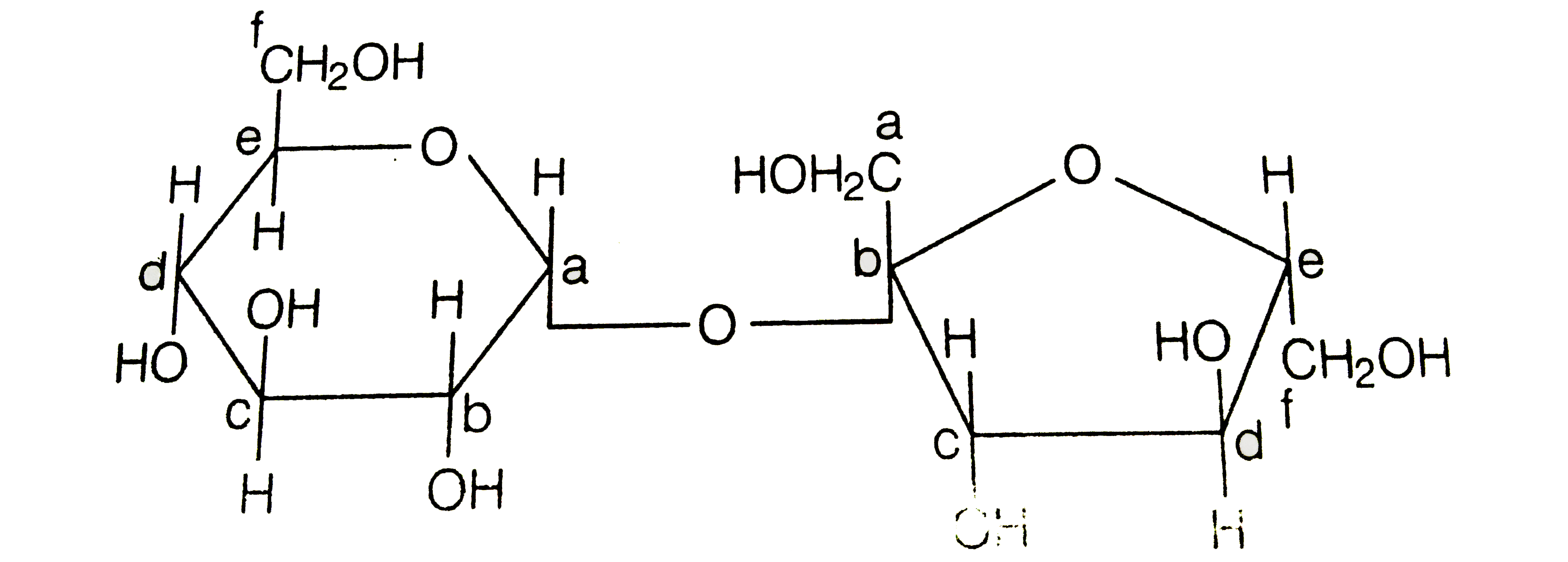
View SolutionThree structures are given below in which two glucose units are linked. Which of these linkages between glucose units are between `C_(1)` and `C_(4)` and which linkages are between `C_(1)` and `C_(6)`?
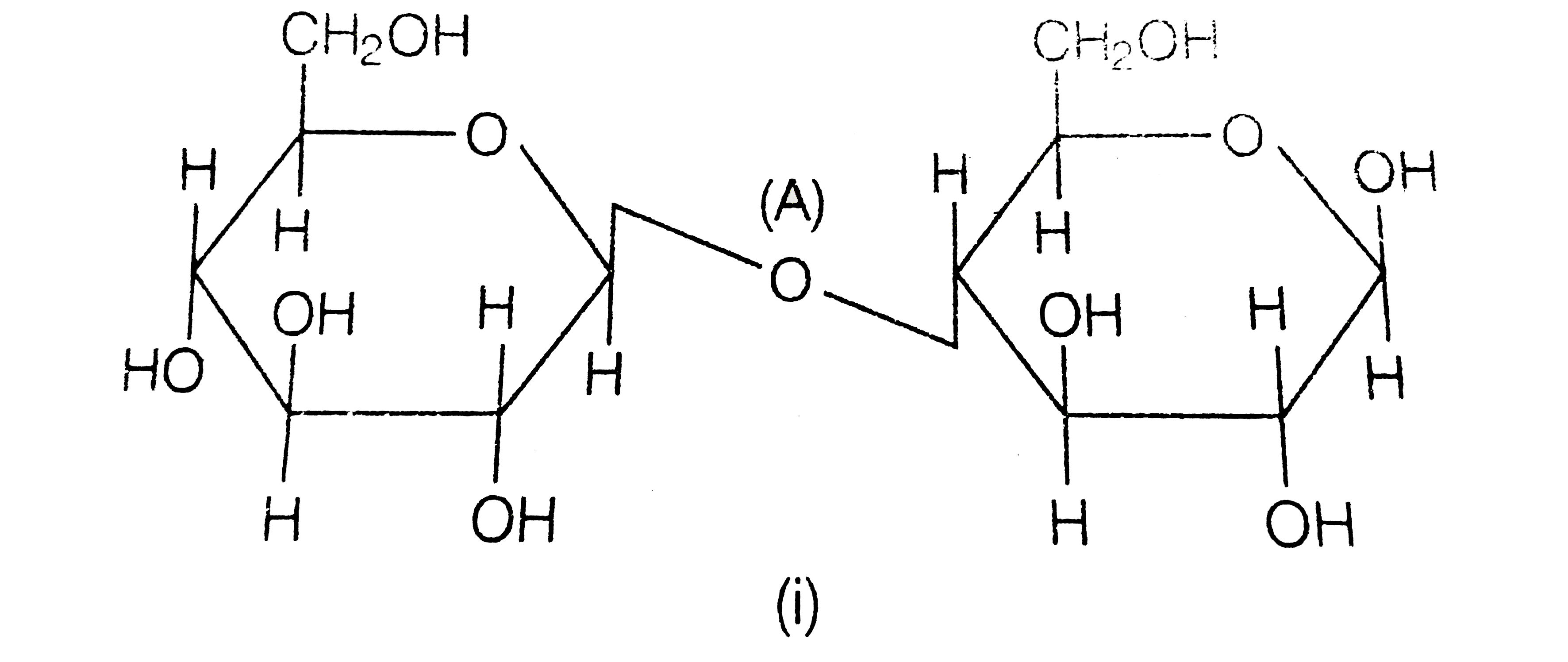
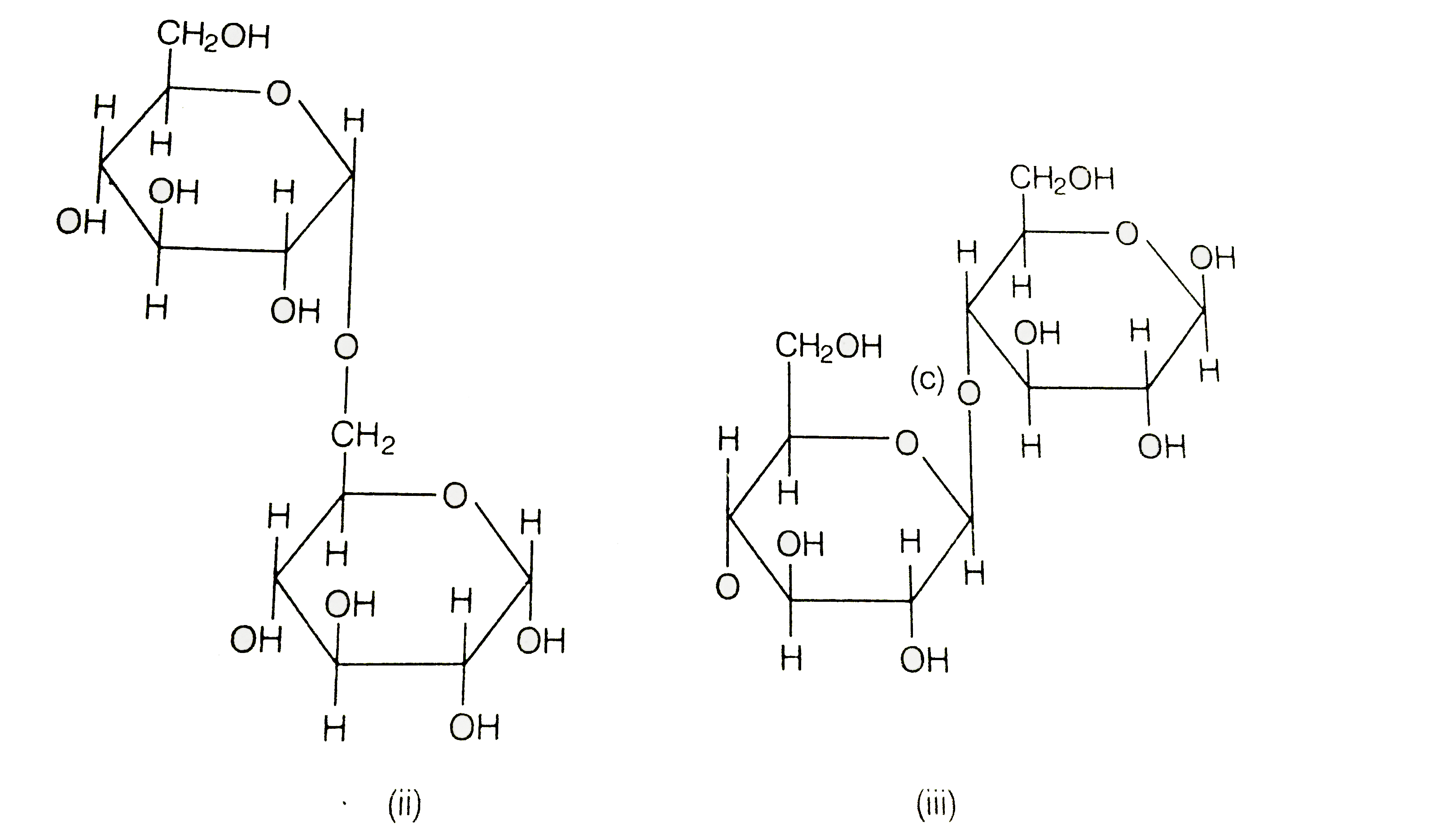
View SolutionCarbohydrates are classified on the basis of their bahaviour on hydrolysis and also as reducing or non-reducing sugar. Sucrose is a ............ .
View SolutionProteins can be classified into two types on the basis of their molecular shape, i.e., fibrous proteins and globular proteins. Examples of globular proteins are
View SolutionWhich of the following carbohydrates are branched polymer of glucose?
View SolutionAmino acids are classified as acidic, basic or neutral depending upon the relative number of amino and carboxyl groups in their molecule. Which of the following are acidic?
View SolutionLysine, `H_(2)N-(CH_(2))_(4)-underset(" "NH_(2))underset(|)(CH)-COOH` is...... .
View SolutionWhich of the following monosaccharides are present as five membered cyclic structure (furanose structure)?
View SolutionIn fibrous proteins, polypeptide chains are held together by........ .
View SolutionWhich of the following are purine bases?
View SolutionWhich of the following terms are correct about enzyme?
View SolutionName the sugar present in milk. How many monosaccharide units are present in it? What are such oligosaccharides called?
View SolutionHow do you explain the presence of all the six carbon atoms in glucose in a straight chain?
View SolutionIn nucleoside, a base is attached at 1' position of sugar moiety. Nucleotide is formed by linking of phosphoric acid unit to the sugar unit of nucleoside. At which position of sugar unit is the phosphoric acid linked in a nucleoside to give a nucleotide?
View SolutionName the linkage connecting monosaccharide units in polysaccharides.
View SolutionUnder what conditions glucose is converted to gluconic acid and saccharide acid?
View SolutionMonosaccharides contain carbonyl group hence are classified, as aldose or ketose. The number of carbon atoms present in the monosaccharide molecule are also considered for classification. In which class of monosaccharide will you place fructose?
View SolutionThe letters 'D' or 'L' before the name of a stereoisomer of a compound indicate the correlation of configuration of that particular stereoisomer. This refers to their refers to their relation with one of the isomers of glyceraldehyde. Predict whether the following compound has 'D' or 'L' configuration.
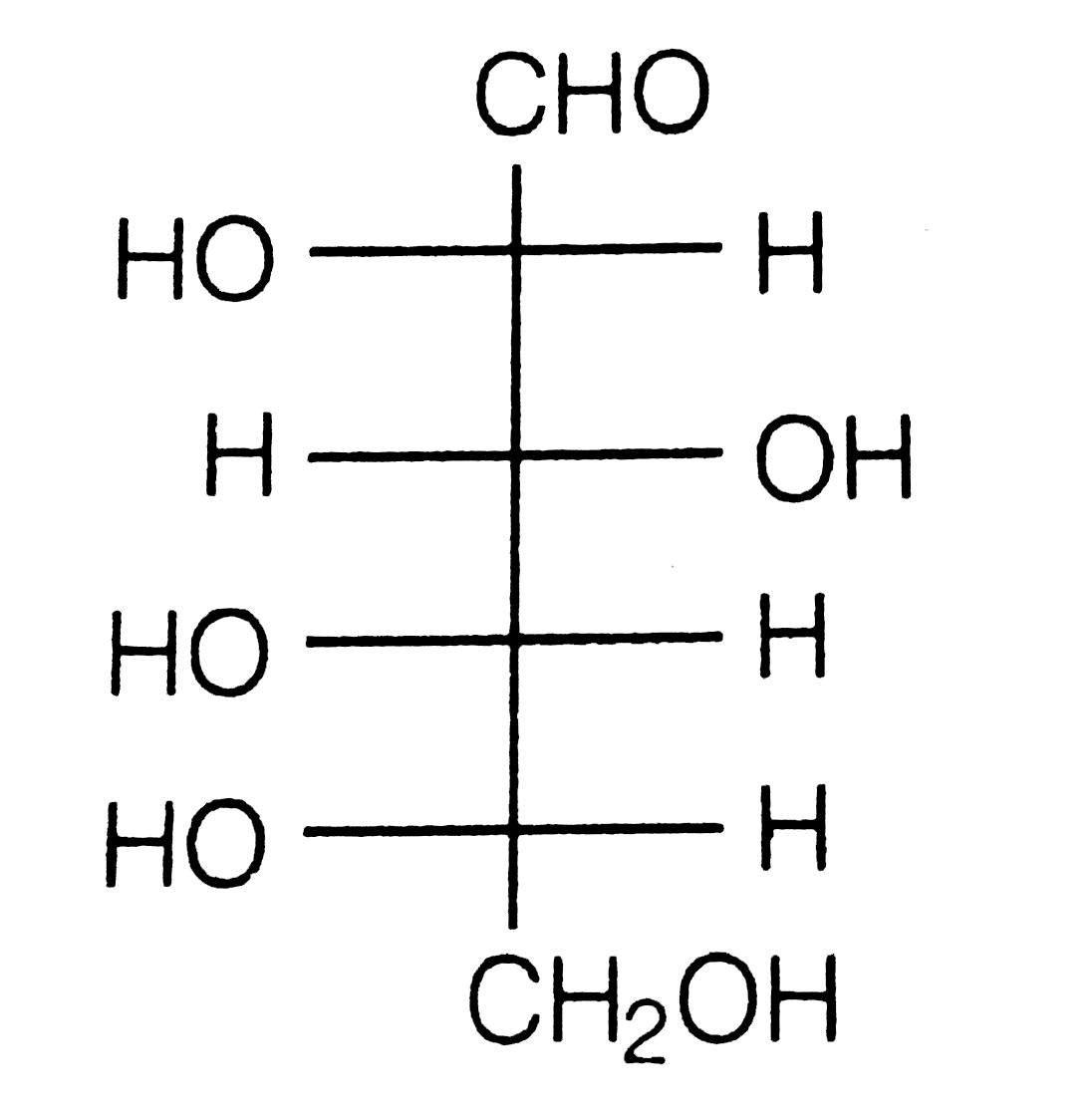
View SolutionAldopentoses named as ribose and 2-deoxyribose are found in nucleic acids. What is their relative configutation?
View SolutionWhich sugar is called invert sugar? Why is it called so?
View SolutionAmino acids can be classified as `alpha-,beta-,gamma-,delta`-and so depending upon the relative position of amino group with respect to carboxyl group. Which type of amino acids form polypeptide chain in proteins?
View Solution`alpha-`helix is a secondary structure of proteins formed by twisting of polypeptide chain into right handed screw like structure. Which type of interactions are responsible for making the `alpha`-helix structure stable?
View SolutionSome enzymes are named after the reaction, where they are used. What name is given to the class of enzymes which catalyse the oxidation of one substrate with simultaneous reduction of another substrate?
View SolutionDuring curdling of milk, what happens to sugar present in it?
View SolutionHow do yout explain the presence of five `-OH` groups in glucose molecule?
View SolutionWhy does compound (A) given below not forman oxime?
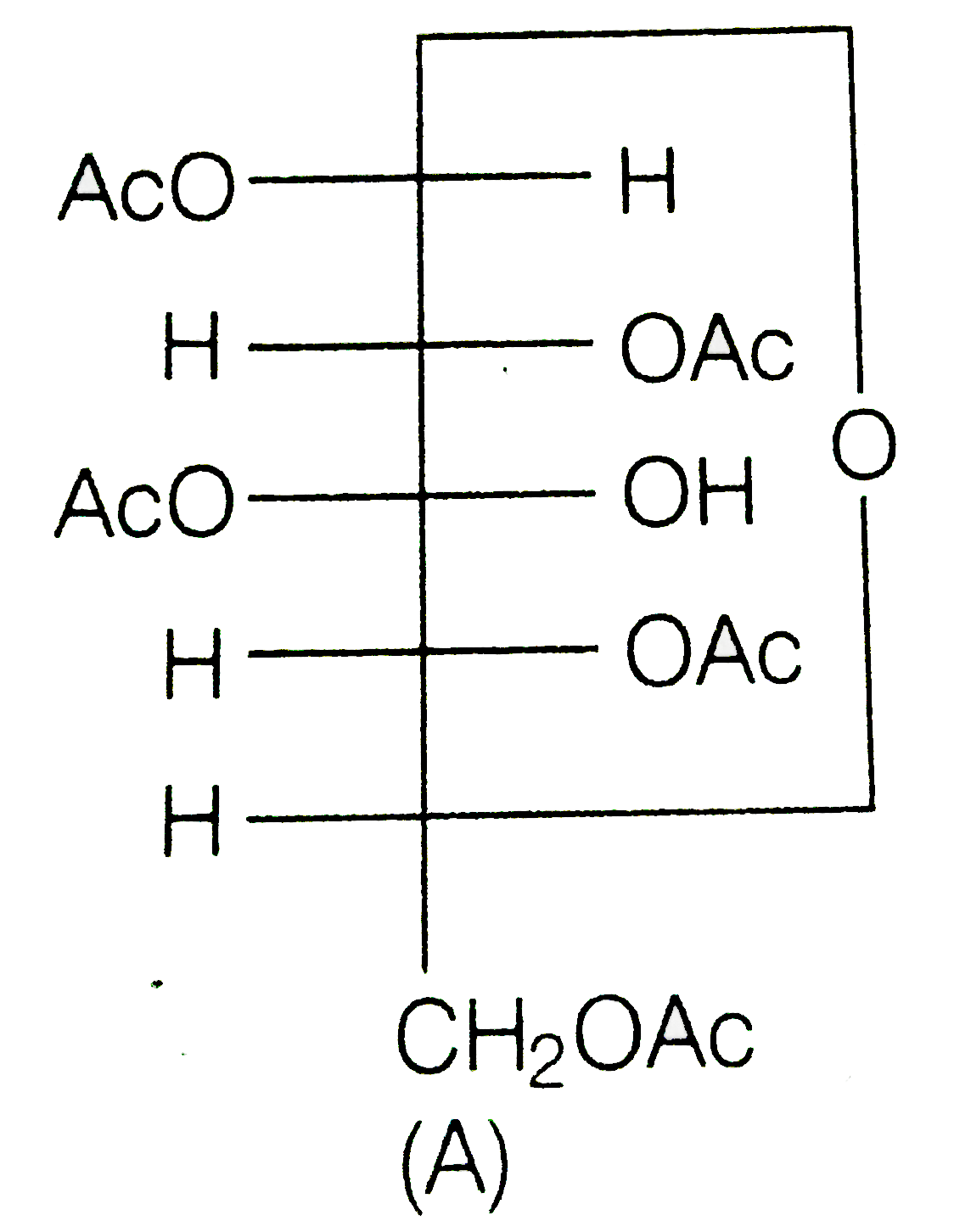
View SolutionWhy must vitamin C be supplied regularly in diet?
View SolutionSucrose is dextrorotatory but the mixture obtained after hydrolysis is laevorotatory. Explain.
View SolutionAmino acids behave like salts rather than simple amines or carboxylic acids. Explain.
View SolutionStructure of glycine and alanine are given below. Show the peptide linkage in glycylalanine.
`underset(("Gylcince")" "("Alanine"))(H_(2)N-CH_(2)-COOH, H_(2)N-underset(CH_(3))underset(|)(CH)-COOH)`
View SolutionProtein found in a biological system with a unique three-dimensional structure and biological activity is called a native protein. When a protein in its native form, is subjected to a physical change like change in temperature or a chemical change like, change in pH, denaturation of protein takes place. Explain the cause.
View SolutionActivation energy for the acid catalysed hydrolysis of sucrose is `6.22 kJ mol^(-1)`, while the activation energy is only `2.15 kJ mol^(-1)` when hydrolysis is catalysed by the enzyme sucrase. Explain.
View SolutionHow do you explain the presence of an aldehydic group in a glucose molecule?
View SolutionWhich moieties of nucleosides are involved in the formation of phosphodiester linkage present in dinucleotides? What does the word diester in the name of linkage indicate? Which acid is involved in the formation of this linkage?
View SolutionWhat are glucosidic linkages? In which type of biomolecules are they present?
View SolutionWhich monosaccharide units are present in strach, cellulose and glucose and which linkage link these units?
View SolutionHow do enzymes help a substrate to be attacked by the reagent effectively?
View SolutionDescrive the term D- and L-configuration used for amino acids with exmaples.
View SolutionHow will you distinguish `1^(@)` and `2^(@)` hydroxyl groups present in glucose? Explain the reactions.
View SolutionCoagulation of egg white on boiling is an example of denaturation of protein. Explain it in terms of structural changes.
View SolutionMatch the vitamins given in Column I with the deficiency disease they cause given in Column II.
`{:(Column I("Vitamins"),Column II("Diseases")),(A."Vitamin"A,1."Pernicious anaemia"),(B."Vitamin"B_(1),2."Increased blood clotting time"),(C."Vitamin"B_(12),3."Xerophthalmia"),(D."Vitamin"C,4."Rickets"),(E."Vitamin"D,5."Muscular weakness"),(F."Vitamin"E,6."Night blindness"),(G."Vitamin"K,7."Beri-beri"),(,8."Bleeding gums"),(,9."Osteomalacia"):}`
View SolutionMatch the following enzymes given in Column I with the reactions they catalyse given in Column II.
`{:(Column I("Enzymes"),Column II("Reactions")),(A."Invertase",1."Decomposition of urea into" NH_(3)and CO_(2)),(B."Maltase",2."Conversion of glucose into enthyl alcohol"),(C."Pepsin",3."Hydrolysis of maltose into glucose"),(D."Urease",4."Hydrolysis of cane sugar"),(E."Zymase",5."Hydrolysis of proteins into peptides"):}`
View SolutionAssertion (A) `D(+)-` Glucose is dextrorotatory in nature.
Reason (R) 'D' represents its dextrorotatory nature.
View SolutionAssertion (A) Vitamin D can be stored in our body.
Reason (R) Vitamin D is fat soluble vitamin.
View SolutionAssertion (A) `beta`-glycosidic linkage is present in maltose.
Reason (R) Maltose is composed of two glucose units in which C-1 of one glucose unit is linked to C-4 of another glucose unit.
View SolutionAssertion (A) All naturally occurring `alpha`-aminoacids except glycine are optically active.
Reason (R) Most naturally occurring amino acids have L-configuration.
View SolutionAssertion (A) Deoxyribose, `C_(5)H_(10)O_(4)` is not a carbohydrate.
Reason (R) Carbohydrates are hydrates of carbon so compounds which follow `C_(x)(H_(2)O)_(y)` formula are carbohydrates.
View SolutionAssertion (A) Glycine must be taken through diet.
Reason (R) It is an essential amino acid.
View SolutionAssertion (A) In presence of enzyme, substrate molecule can be attacked by the reagent effectively.
Reason (R) Active sites of enzymes hold the substrate molecule in a suitable position.
View SolutionWrite the reactions of D-glucose which can't be explained by its open chain structure. How can cyclic structure of glucose explain these reactions?
View SolutionOn the basis of which evidences D-glucose was assigned the following structure?
`overset(" "CHO)overset(|)underset(" "CH_(2)OH)underset(|)(" "(CHOH)_(4))`
View SolutionCarbohydrates are essential for life in both plants and animals. Name the carbohydrates that are used as storage molecules in plants and animals, also name the carbohydrate which is present in wood or in the fibre of cotton cloth.
View SolutionExplain the terms primary and secondary structures of proteins. What is the difference between `alpha`-helix and `beta`-pleated sheet structure of proteins?
View SolutionWrite the structures of fragments produced on complete hydrolysis of DNA. How are they linked in DNA molecule? Draw a diagram to show pairing of nucleotide bases in double helix of DNA.
View Solution
Biomolecules questions and complete solutions for chapter BIOMOLECULES of CHEMISTRY of Class 12